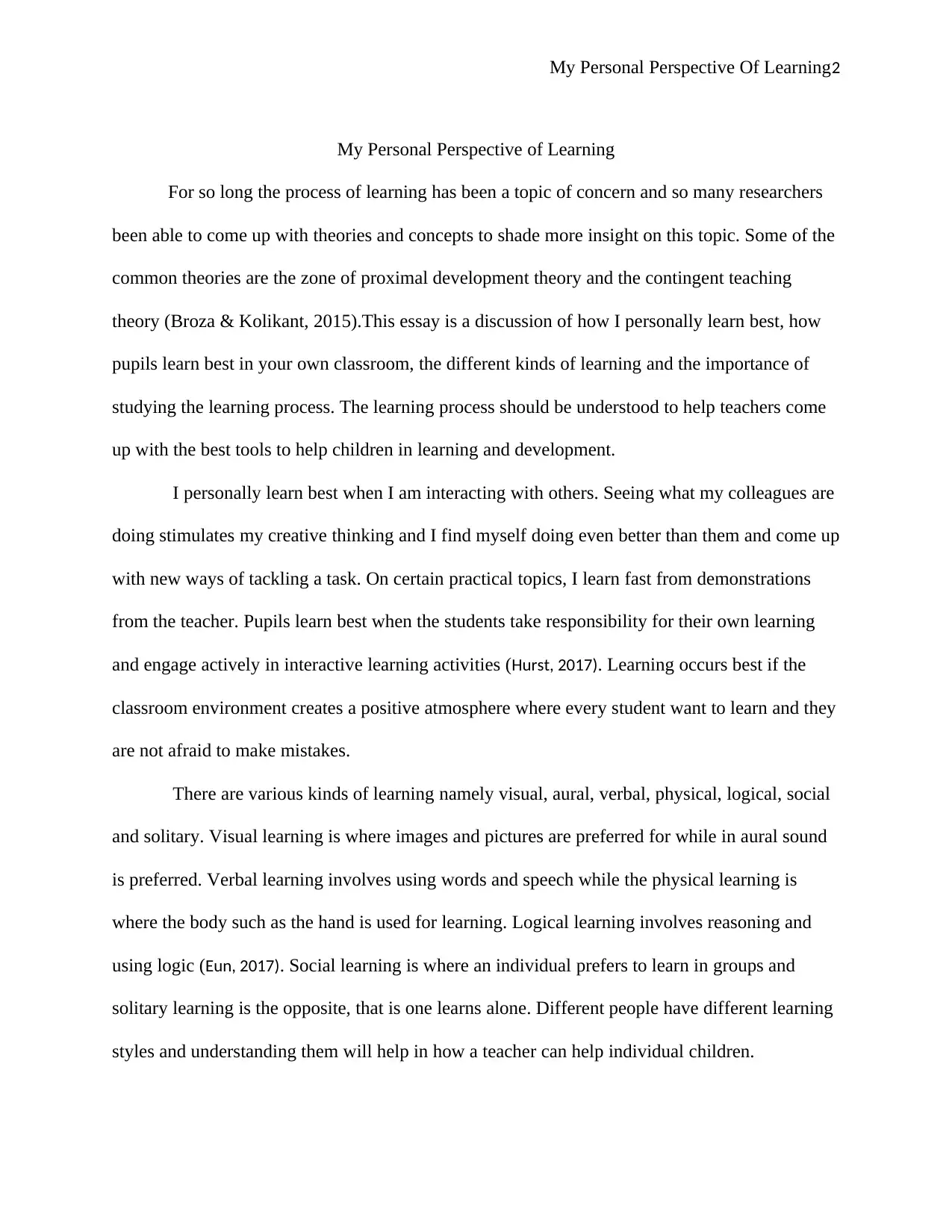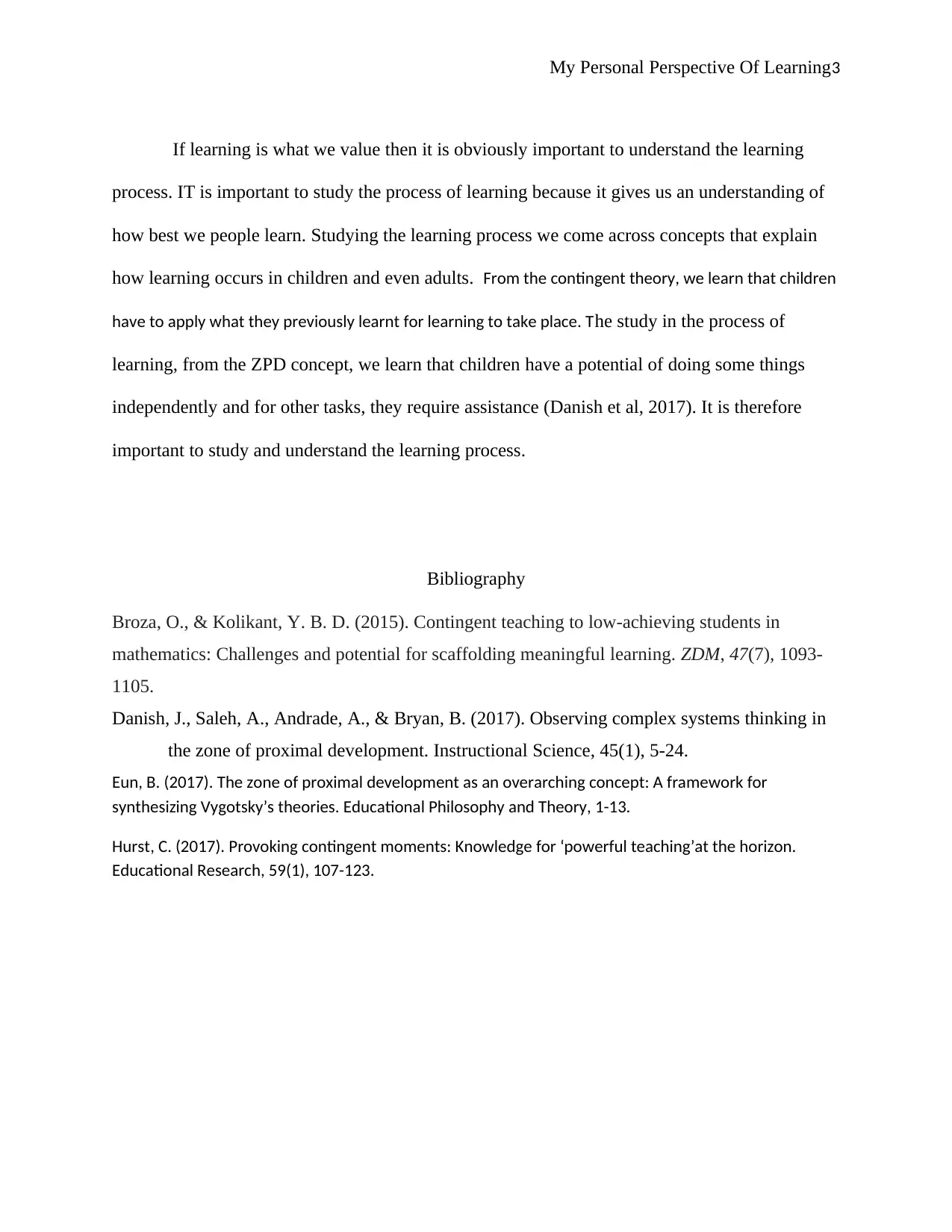Understanding My Personal Perspective and the Learning Process
VerifiedAdded on 2023/06/13
|3
|654
|351
Essay
AI Summary
This essay delves into a student's personal perspective on learning, highlighting the importance of understanding the learning process and different learning styles. The author learns best through interaction with others and demonstrations. Effective learning occurs when students take responsibility and engage in interactive activities within a positive classroom environment. Various learning styles, including visual, aural, verbal, physical, logical, social, and solitary, cater to different individual preferences. Understanding the learning process, including concepts like the zone of proximal development and contingent teaching, is crucial for educators to provide the best support for children's learning and development. Desklib provides a platform to access more resources and solved assignments for students.
1 out of 3










![[object Object]](/_next/static/media/star-bottom.7253800d.svg)